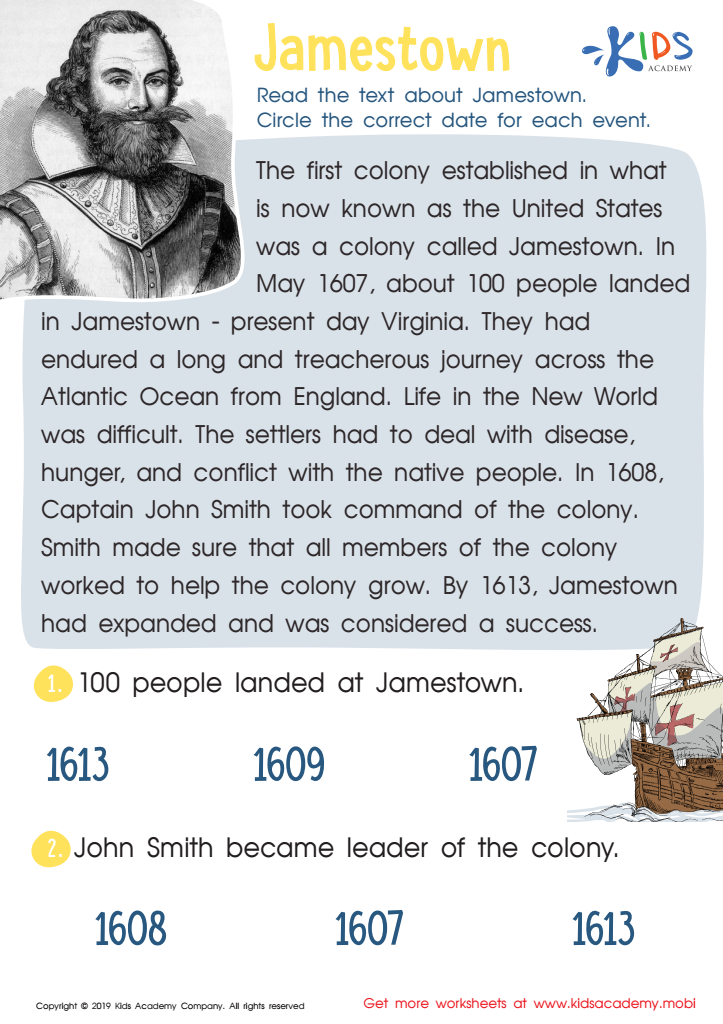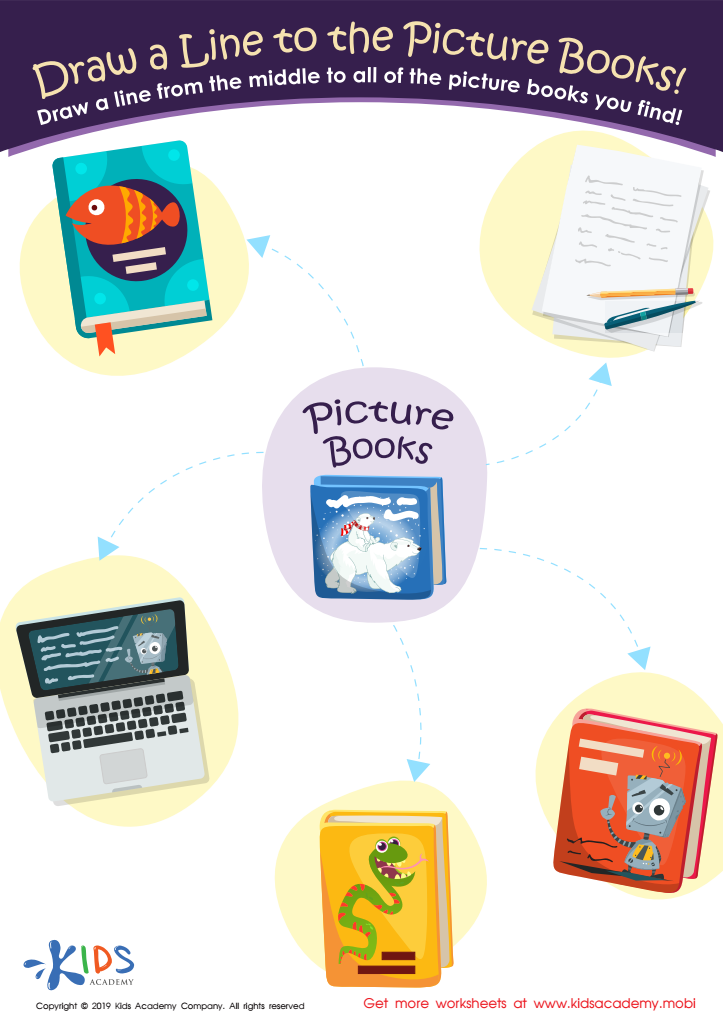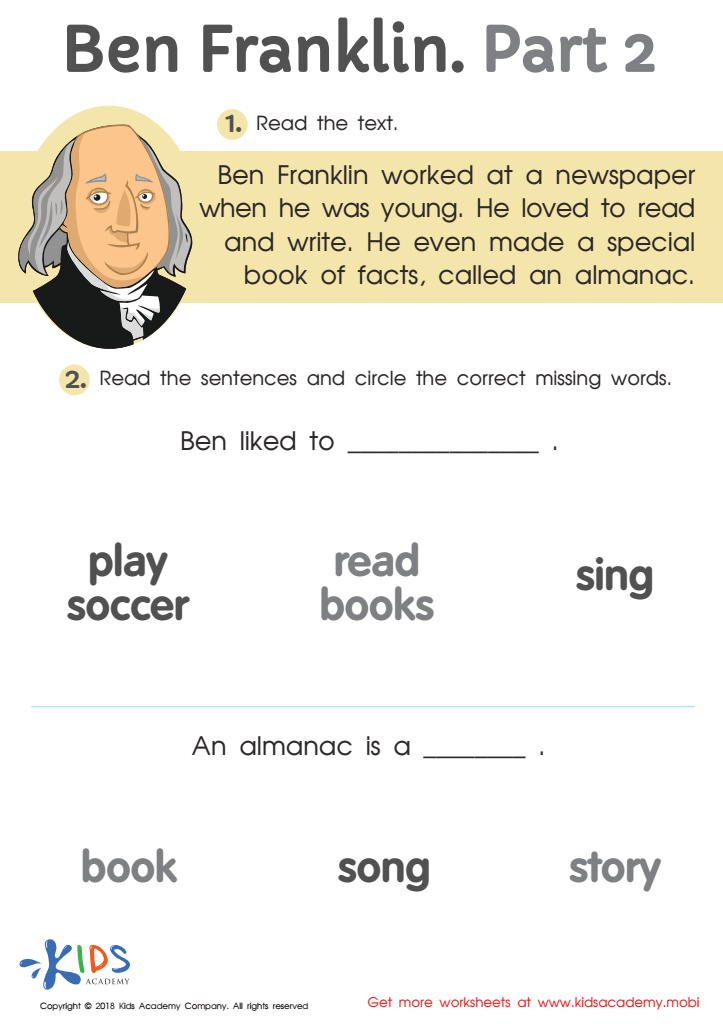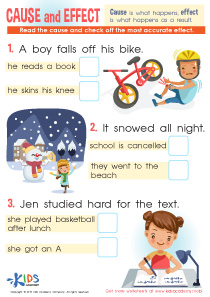Reading Skills Normal Reading Non-Fiction Worksheets for Ages 3-8
3 filtered results
-
From - To
Develop your child's reading comprehension abilities with our "Reading Skills: Non-Fiction Worksheets" designed for ages 3-8. Created to cultivate a love for reading, these educational worksheets focus on enhancing children's ability to understand and analyze informational texts. Featuring engaging topics and age-appropriate activities, our worksheets help young learners develop key skills such as identifying main ideas, recalling facts, and making inferences. Ideal for both classroom and at-home learning, these tools support early readers in becoming confident and competent in navigating non-fiction content, setting the foundation for a lifetime of literacy and learning success.


Jamestown Worksheet


Draw a Line to the Picture Books Worksheet


Ben Franklin Part 2 Worksheet
Parents and teachers should deeply care about developing reading skills in children ages 3-8, especially with non-fiction material, because these foundational years are critical for cognitive and academic growth. Early engagement with reading helps build essential language skills, including vocabulary, comprehension, and critical thinking—skills that are fundamental for lifelong learning.
Non-fiction texts introduce children to real-world concepts and facts, broadening their understanding of the world around them. For example, reading a simple book about animals, weather, or community helpers can spark curiosity and foster an appreciation for factual knowledge. This engagement is particularly crucial in developing skills to distinguishing fact from fiction, which is increasingly important in today’s information-rich world.
Moreover, developing strong reading habits early on sets the stage for future academic success. Proficiency in reading by third grade serves as a predictor of later academic performance since so much of learning in higher grades depends on the ability to read and understand diverse materials. Encouraging children to read non-fiction can help them develop a more critical and analytical mind, preparing them for complex subjects they will encounter later in their educational journey.
By fostering a child's reading skills and familiarity with non-fiction early, parents and teachers are investing in a child's intellectual foundation, which supports their confidence, curiosity, and future learning opportunities.
 Assign to My Students
Assign to My Students





















